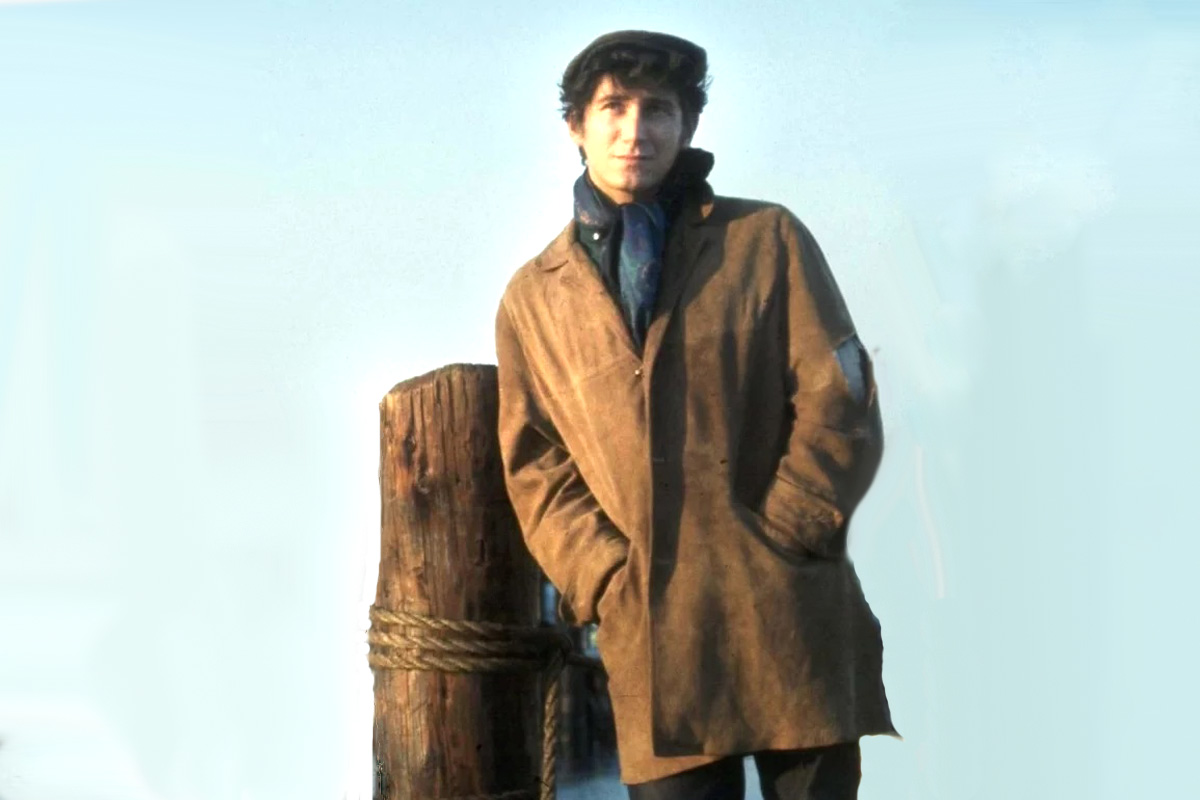More languages
More actions
Phil Ochs | |
|---|---|
 | |
| Born | Philip David Ochs December 19, 1940 El Paso, Texas, United States of America |
| Died | April 9, 1976 New York City, State of New York, United States of America |
| Cause of death | Suicide |
Philip David Ochs was a Statesian Left-wing protest singer and songwriter, mostly within the Folk genre.[1]
He participated in the Folk Revival musical movement in the United States, as well as several political movements including the Civil Rights Movement, the Anti-Vietnam War movement, and the Labor Rights movement.[1]
His political views changed throughout his life, with him advocating for the Democratic Party in his early years, before identifying as a Marxist and a Communist later.[2]
Early Life
Phil Ochs was born December 19, 1940 in El Paso Texas to Jacob and Gertrude Phin Ochs. His father was Jewish and his mother was raised in Scotland, where she and Jacob met. He was raised with his older sister Sonia, nicknamed Sonny, and a younger brother Michael.[3]
Jacob Ochs was a military doctor, and as a result of this occupation was made to move often. After the entry by the United States into the Second World War Ochs' was sent to Europe to treat wounded soldiers. Ochs suffered from bipolar depression, then called manic depression. This, compounded with trauma from his work treating wounded soldiers at the Battle of the Bulge in the Second World War, led to Ochs' honorable discharge from the military in 1945.[4]
In late 1945 the Ochs family moved to Far Rockway, New York. Jacob Ochs was hospitalized in Long Island for psychiatric treatment soon after, where he spent two years.[4] In February 1947 Gertrude Ochs took her children to Scotland to stay with her family. They stayed for six months.[5] When Jacob Ochs was released from treatment he started a small private medical practice.[6]
Jacob and Gertrude Ochs' marriage was strained and unhappy from this point, with Jacob Ochs becoming reclusive and distant from his family, described later by Sonny Ochs as being, "like a phantom." Jacob moved without his family to Otisville, New York to work in a small tuberculosis clinic.[6]
In June 1951 the Ochs family moved again, this time to Perrysburg, New York, for Jacob's work. Here, all three children began playing instruments, with Phil choosing the clarinet. Here, Phil Ochs' lifelong passion for music first became evident.[7]
In 1954 the clinic Jacob Ochs worked at closed, and the family, now without Sonny, who was at school in Switzerland, moved again, this time to Columbus, Ohio, where Jacob found work at another tuberculosis clinic. Noticing Phil's talent, his clarinet teacher offered to let Ochs stay with him to continue his studies, but Gertrude refused, and Phil moved with his family.[8]
Gertrude Ochs, disliking the school her children went to in Columbus, deciding to transfer them to the Columbus Academy. Phil disliked the idea and, after Staunton Military Academy in Virginia in a magazine, asked to go there instead. His mother agreed, and he was transferred there.[9]
Ochs began to build his identity there, as well as beginning to go by Phil rather than Philip. He was a member of the school's marching band, but felt stifled by the uniformity of the military school's band.[10]
At Staunton, Ochs first began to listen to country music. Like with the clarinet, he demonstrated an obsessive passion for it. At this time he first began to entertain the idea of fame as a musician.[11]
After finishing high school, Phil decided to go to Ohio State.[11]
Personality and Early Influences
Ochs was considered shy and quiet throughout his childhood by his family as well as being forgetful, losing his school books, glasses and later his wallet. His teachers considered him inattentive and his sister described him as a "dreamer, with a capital D."[5]
Movies played a very important role in Phil's early identity. He and his brother Michael spent large amounts of time at movie theaters, sometimes watching up to nine movies a week. He enjoyed action movies and actors such as John Wayne and Audie Murphy, whose conservative, chauvinistic beliefs contrasted with Phil's later radical beliefs. Actors such as them also led Ochs' aspiration to fame.[12][13] As an older teenager in Ohio, Ochs idolized James Dean, whose tragic death at the age of 24 deeply effected Phil. His song "Jim Dean of Indiana" was written about James Dean.[14]
Education and Early Career
Career and Activism
Chicago Democratic National Convention and Later Career
Mental Decline, Final Years, and Death
- ↑ 1.0 1.1 "This week in history: Remembering protest singer Phil Ochs" (2016-12-19). People's World.
- ↑ imgonnasayitnow (2022-02-04). "Phil Ochs Interview Australia 1972". YouTube.
- ↑ Michael Schumacher (1996). There But For Fortune: 'Boy in Ohio'.
- ↑ 4.0 4.1 Michael Schumacher (1996). There But For Fortune: 'Boy in Ohio' (pp. 15-17).
- ↑ 5.0 5.1 Michael Schumacher (1996). There But For Fortune: 'Boy in Ohio' (pp. 18-19).
- ↑ 6.0 6.1 Michael Schubacher (1996). There But For Fortune: 'Boy in Ohio' (pp. 20-21).
- ↑ Michael Schumacher (1996). There But For Fortune: 'Boy in Ohio' (p. 23).
- ↑ Michael Schumacher (1996). There But For Fortune: 'Boy in Ohio' (pp. 14-25).
- ↑ Michael Schumacher (1996). There But For Fortune (pp. 25-26).
- ↑ Michael Schumacher (1996). There But For Fortune: 'Boy in Ohio' (p. 27).
- ↑ 11.0 11.1 Michael Schumacher (1996). There But For Fortune: 'Boy in Ohio' (pp. 27-28).
- ↑ Michael Schumacher (1996). There But For Fortune: 'Boy in Ohio' (p. 20).
- ↑ "There But For Fortune (6:15)" (2011).
- ↑ "Behind the Songs: Jim Dean of Indiana" (2008-12-26). Life of a Rebel.
